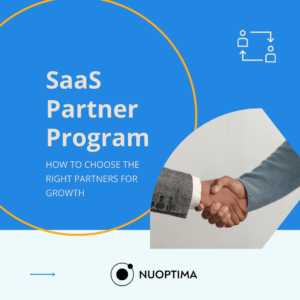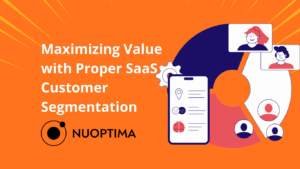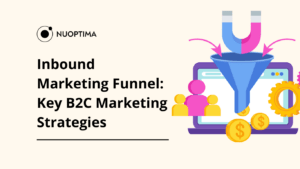What if the future of SaaS isn’t about starting from scratch but about strategically banding together? This intriguing question invites us to explore the evolving landscape of SaaS, where the concept of aggregation is taking center stage.
Aggregating software businesses under a singular banner isn’t a novel concept. Leaders like Constellation Software in the USA and Visma in the Nordics have already paved the way, with Constellation overseeing more than 1,000 businesses across 50 verticals through its six operating groups and Visma having acquired over 380 companies since inception, with roughly 50 acquisitions annually. These strategies have not only demonstrated long-term investor returns but also showcased the strength of vertical market software (VMS) aggregation.
However, the tide is shifting towards SaaS business aggregation. This trend diverges from traditional standalone operations, focusing instead on products or apps that fulfill specific functions, seamlessly transferable across markets. This model offers a new avenue for bootstrapped SaaS businesses, akin to the Amazon FBA brand aggregation game, providing exit opportunities for small to micro-SaaS companies that might not attract private equity investors or fit the venture capital mold due to their size, market reach, or industry fragmentation.
The goal for these SaaS aggregators extends beyond mere acquisition. It lies in the synergy of cross-selling products within the portfolio, optimizing marketing strategies (SEO, paid traffic, email marketing), and leveraging a vast vendor network to enhance distribution. This is where the role of an operating partner becomes crucial, as they bring their expertise to optimize these integrations and drive growth. Such an ecosystem not only allows for in-house tool development but also leverages data insights for better acquisition and development of SaaS tools. Moreover, these aggregators are not confined to one platform; they aim to expand across Shopify, WooCommerce, BigCommerce, and Amazon, enriching the content management ecosystem through a comprehensive VC platform.
While the narrative of Amazon brand aggregators serves as a word of caution, with many facing challenges under the weight of financial strains, the success stories of Constellation Software and other entities in the realm underscore the viability and potential of acquiring software businesses. Simply put, the opportunities for growth, value creation, and a strategic SaaS exit deal for SaaS company founders are clear, indicating a promising yet complex landscape ahead.
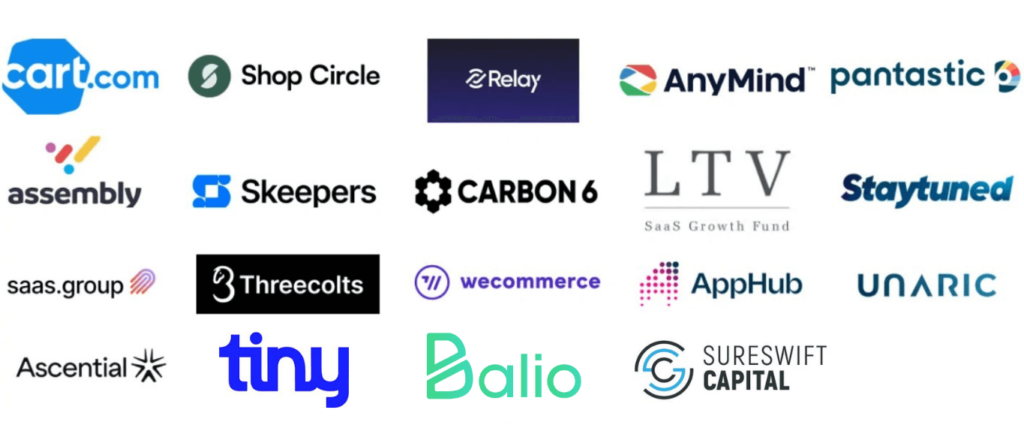
Hence, this article delves into the burgeoning trend of SaaS business aggregation. We will examine different aggregators, offering insights into their portfolio overviews and discussing key details such as equity investors, investment raised, and debt. This analysis intends to provide a thorough understanding of the financial and strategic underpinnings that characterize successful SaaS business aggregations, emphasizing the essential considerations for investors and entrepreneurs in this dynamic field.
Cart.com
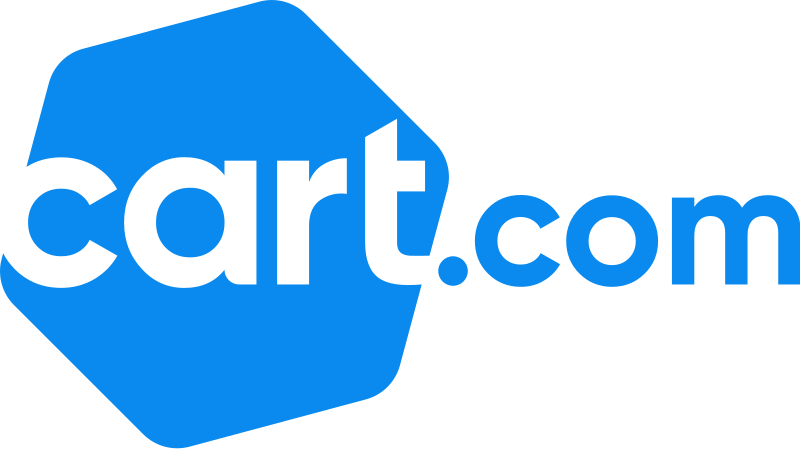
| 180Commerce | Specializes in Amazon brand management and sales technology. |
| AmeriCommerce | Provides cloud-based e-commerce software and shopping cart solutions. |
| DataFeedWatch | Offers online marketing and pay-per-click bid management services. |
| FB Flurry | Delivers DTC and B2B fulfillment and customer care. |
| SellerActive | Offers multi-channel e-commerce tools for sellers. |
| The DuMont Project | A consultancy specializing in DTC marketing. |
Shop Circle
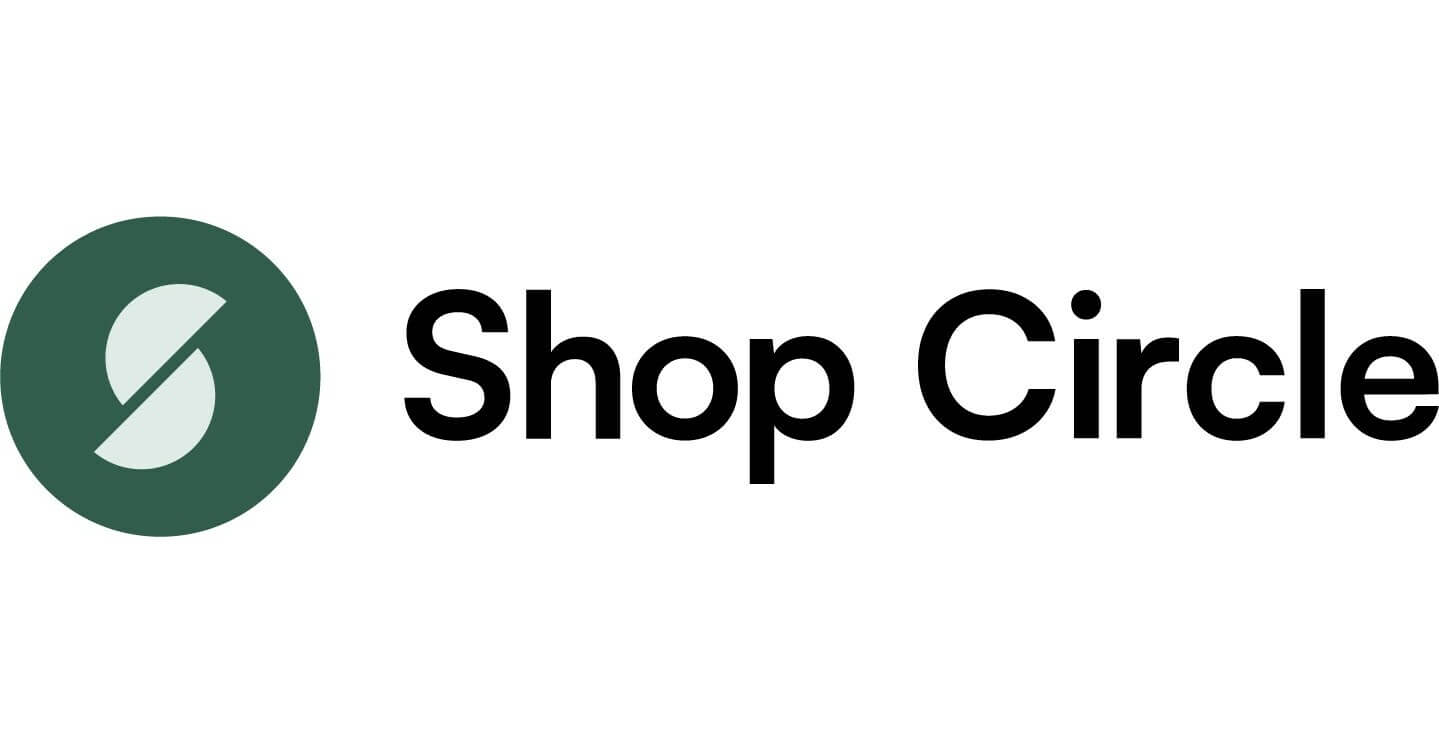
Launched in 2021 by Luca Cartechini and Gian Maria Gramondi, all of Shop Circle’s acquisitions have been around the Shopify content management ecosystem.
More specifically, the company’s acquisition criteria are split into the following categories:
- Business Performance (profitable and healthy financial metrics),
- Software Capabilities (strong development team, super fast and ultra-responsive software)
- Customer Satisfaction (high retention rates, low churn, positive feedback)
- Sustainable Growth (whether there is more room to grow in the existing market).
With a diverse portfolio encompassing Conjured Referrals and Sky Pilot, the company has garnered $73 million in funding to date, notably through a substantial Series A round. Moreover, Shop Circle commits to expediting deal closures within 40 days, commencing with a virtual meeting with the core team and submission of a letter of intent specifying purchase price, transition terms, and support arrangements, culminating in a binding sales and purchase agreement after a code review and tech due diligence.
| Bold Loyalty Points | Creates personalized loyalty programs to boost customer engagement through rewards. |
| Bold Product Options | Offers extensive customization for product options, including upsells and cross-sells. |
| Bold Sales Motivator | Interactive, geo-targeted bar to motivate sales with promotions. |
| Bold Store Locator Map | Displays an interactive map with real-time directions to stores. |
| SC Conjured Referrals | Automates referral programs to enhance customer loyalty. |
| SC Customer Tagging | Uses auto-tags for smarter customer segmentation. |
| SC Order Tags & Flows | Streamlines fulfillment by automating order tags and flows. |
| SC Shipping Rates Calculator | Calculates shipping rates and delivery estimates using geolocation. |
| SC Video Background | Allows sellers to enhance storefronts with video backgrounds. |
| Sky Pilot | Automatically delivers digital files and videos to customers post-purchase. |
Relay Commerce
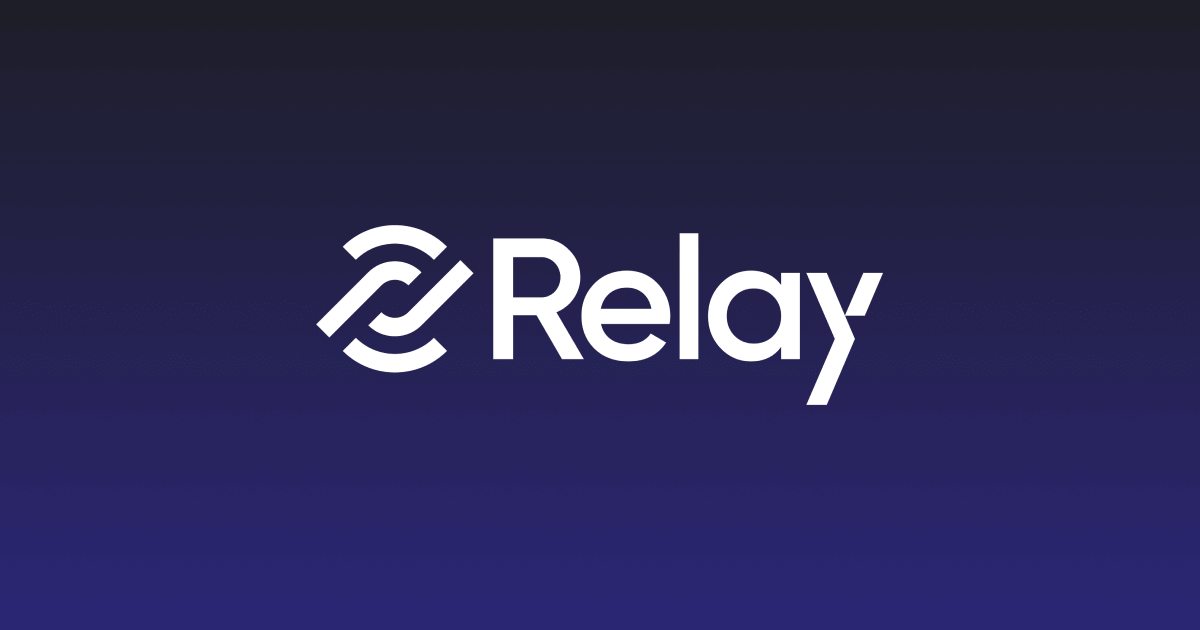
| Fomo | A real-time social proof application. |
| SalesPop | Provides conversion-boosting pop-up templates. |
| SmartrMail | Specializes in email marketing for e-commerce platforms. |
AnyMind Group

AnyMind Group was founded in Singapore in 2016, and the company rapidly expanded into India, East and Southeast Asia and the Middle East. They moved their headquarters to Tokyo in 2019 to become eligible to be listed on the Tokyo Stock Exchange. Other than this, the group maintains a wide assortment of companies and platforms dedicated to serving e-commerce sellers and content creators. As of 2022, AnyMind employs over 1,000 people in 13 markets across the world, operates 17 offices and powers over 1,000 brands.
Here’s a table summarizing the funding history:
| Year | Funding Amount | Pre-Money Valuation | Notes |
| 2017 | $14.5 million | – | Venture funding |
| 2018 | $13.4 million | $200 million | Venture funding |
| 2019 | $8 million | $192 million | Venture funding |
| 2022 (Series C) | $26.4 million | – | Led by Japan Post Capital |
| 2022 (Series D) | ¥5 billion | – | IPO planned but not pursued due to market conditions; 1 billion of the raised sum in the form of debt capital |
| AnyChat | Enhances customer interactions with a conversational commerce tool. |
| AnyCreator | A platform assisting creators in finding brand collaborations and analyzing social media data. |
| AnyDigital | Manages both online and offline marketing with a comprehensive digital platform. |
| AnyFactory | Connects sellers with suppliers through a cloud-based manufacturing platform. |
| AnyLogi | Streamlines logistics for D2C and e-commerce entities. |
| AnyManager | A platform supporting media and e-commerce growth. |
| AnyShop | Provides services for website building and store launching. |
| AnyTag | A platform dedicated to influencer and social media marketing efforts. |
| AnyX | Centralizes e-commerce and D2C channel management, optimization, and tracking. |
Pantastic

| CartHook | Provides post-purchase one-click offers for e-commerce. |
| LimeSpot | Offers personalized shopping and merchandising solutions. |
| Shoppe | A network platform for indie brands to connect and sell. |
| Uporder (formerly Spently) | Supplies email templates specifically designed for Shopify retailers. |
Assembly

In January 2019, Assembly secured investment from Providence Strategic Growth (PSG), which it leveraged to purchase Helium 10 – a premier business intelligence software for Amazon merchants. A subsequent investment round in July 2021, led by PSG and Advent International, placed the company’s valuation at $1 billion, although the investment amount was not disclosed.
Additionally, Assembly engaged in substantial debt financing to further its expansion, hiring, and acquisition strategy, amassing over $224 million during this period. This funding included $113 million as first-lien senior secured debt and $58 million as a first-lien senior secured unfunded commitment. Goldman Sachs Private Middle Market Credit II BDC and Goldman Sachs BDC contributed nearly $53 million as an unfunded commitment.
Additionally, in October 2021, Assembly raised an additional $270 million through borrowing from Morgan Stanley Direct Lending Fund BDC and Monroe Capital, aiming to finance new acquisitions.
| Helium 10 | E-commerce tool for Amazon sellers, focusing on analytics and optimization. |
| OrderMetrics | Analytics software for tracking e-commerce profitability and expenses. |
| Refersion | Manages and tracks SaaS affiliate marketing programs. |
| Prestozon | Amazon PPC automation and analytics platform for advertisers. |
| Pacvue | Suite for digital advertising, sales management, and insights. |
| PipeCandy | Market intelligence platform specializing in e-commerce analytics. |
Skeepers

| Customer Data Activation Solution | A marketing platform specializing in customer data analysis. |
| Customer Videos Platform | Automated consumer video collection and sharing service. |
| Feedback Management Platform | Offers smart surveys for collecting customer feedback. |
| Influencer Marketing Platform | Manages campaigns for influencers and reviews. |
| Live Shopping Platform | Hosts live shopping events featuring influencers. |
| Verified Reviews Platform | Collects and presents branded consumer reviews online. |
Carbon6

Carbon6, established in the summer of 2021 and based in Toronto, serves as a prominent aggregator within the Amazon app ecosystem, aiming to streamline the selling process for merchants on the platform. In its early stages, in May 2021, the company secured $2.1 million in venture capital from Benevolent Capital, valuing it at $6 million before additional investments. By July 2022, Carbon6 had successfully raised an additional $13.8 million, with Pitchbook reporting its valuation at $80 million prior to this funding.
In a significant move to accelerate growth, October 2022 saw the company receiving $66 million in Series A financing. This round featured a blend of equity investments from White Star Capital, Benevolent Capital, and Kale Investment Fund, supplemented with debt financing from MidCap Financial, marking a pivotal phase in its expansion.
| PixelMe | Enhances Amazon seller revenue, listing rankings, and traffic acquisition. |
| SellerTools | Optimizes Amazon listings for increased conversions. |
| AMZAlert | Offers 24/7 listing monitoring and immediate problem alerts. |
| ZonTools | Facilitates Amazon PPC management to lower ACOS. |
| ScanUnlimited | Simplifies product selection and supplier finding for sellers. |
| PayFleet | Provides quick financing options for sellers to grow their business. |
| MerchNinja | Supports keyword research for improved seller performance. |
| PrettyMerch | Utilizes advanced sales analytics to help business owners get on top of profitable trends. |
| ZenArbitrage | Enables the creation and operation of a profitable online arbitrage business. |
| ManageByStats | Delivers an integrated software suite for sellers to optimize their business. |
| SoStocked.com | Offers inventory management software designed for Amazon sellers. |
| WallySmarter | Provides an all-in-one data management platform for Walmart.com sellers. |
LTV SaaS Fund
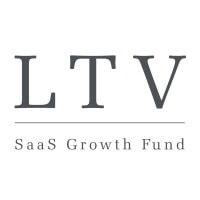
Based in New York, the LTV SaaS Fund is a specialized private equity fund dedicated to investing in SaaS enterprises. Emerging from its origins within the brokerage and advisory firm FE International, it originally operated four global funds with $100m in assets under management, and holds 11 active investments.
More specifically, LTV SaaS Fund has specialized focuses: Funds V and VI, launched in 2018 and 2019, target Shopify apps, while Fund VII, introduced in 2021, is geared towards B2B SaaS businesses. The latest, LTV SaaS Growth VIII Fund, initiated last year, zeroes in on B2B SaaS enterprises within the fintech and payment processing sectors.
Additionally, in a recent move, LTV SaaS Fund led a significant $35 million investment round for ThriveCart, a leading provider of e-commerce cart solutions designed to streamline sales funnels for entrepreneurs. This strategic investment aimed at propelling the platform’s development forward and scaling its team, reinforcing ThriveCart’s commitment to delivering advanced sales engagement and funnel creation tools to digital entrepreneurs worldwide.
| Newor Media | Provides ad management services to website owners. |
| Codeinero | Creates apps for Shopify stores. |
| Quetext | Checks text for plagiarism. |
| Txt2Give | Facilitates donations through text messages for nonprofit organizations, churches, politicians, etc. |
| SentryKit | Monitors Amazon listings and notifies sellers of problems and changes. |
| In Cart Upsell | Allows sellers to upsell their products in the shopping cart. |
| Product Customizer | Makes it easy for e-commerce customers to customize products and view visualizations in real-time. |
| Trackify | Facilitates Facebook, Snapchat, Instagram and TikTok pixel integration. |
| Website On Demand | Provides apps for Shopify sellers. |
Staytuned

Founded in 2019 by Randy Jimenez and Serge Kassardjian, Staytuned is a New York City-based company that has secured funding from both angel investors and institutional venture capitalists. Upon procuring a business, Staytuned enhances the acquired software by introducing new features, launching new pricing models, and seamlessly integrating it into its own ecosystem. This strategy not only enriches their product lineup but also enables the cross-selling of new apps to their existing customer base.
Boasting nearly 30,000 users worldwide, Staytuned is on a trajectory to broaden its product range and boost its development efforts. This ambition is buoyed by a recent infusion of $34 million in funding from notable investors, including TenOneTen and Rembrandt VC, and is further supported by a substantial credit facility from Tacora Capital.
| Kiwi | Gives brand owners an easy way to determine the correct clothing sizes for customers. |
| AOVBoost | Allows store owners to automatically create exclusive offers before checkout. |
| Dexter | Facilitates easy A/B price testing. |
| Moonship | Creates personalized discount offers for shoppers to increase conversion rates. |
| Evey Events | Makes it effortless for brand owners to sell tickets to their events. |
| Box Builder | Allows e-commerce sellers to create customized product bundles and gift boxes. |
saas.group

saas.group, headquartered in Nevada, operates on a unique model of acquiring businesses and integrating them under a single umbrella to unlock revenue and cost synergies. It was founded by three German entrepreneurs that bring a wealth of experience from the tech and marketing industries.
| Name | Role | Background |
| Tim Schumacher | CEO |
Chairman and co-founder of Eyeo (AdBlock Plus)
Co-founder of Sedo.com |
| Tobias Schlottke | CTO |
Co-founded OMR (Online Marketing Rockstars)
Co-founder and CTO of Metrigo and Adyard |
| Ulrich Essmann | Chief People Officer |
Co-founded Sedo.com with Tim Schumacher
Served as Chief Product Officer |
The company is industry and vertical-agnostic, holding a diverse portfolio that includes scraping, developer tools, and SEO products. With an average acquisition size around $6 million, saas.group engages in deals as small as $1 million for businesses that demonstrate longevity, strong organic growth, and a loyal customer base. Furthermore, it has made minority investments in CarbonCloud, Waydev, ContractBook, Sastrix, and zenloop.
| DeployBot | Acquired in February 2018, it enables developers to build and ship code faster. |
| Juicer | Acquired in June 2018, this aggregates hashtags and social media posts into a single social media feed on your website. |
| Sniply | Procured in 2019, it facilitates sharing links with a call to action. |
| Prerender | Acquired in March 2020, this enhances the visibility of JavaScript-heavy websites to search engines. |
| Scraper API | This proxy service, acquired in August 2020, allows developers to embed scraping into any application. |
| GitTower | A Git client for Windows and macOS. |
| Rewardful | Following its acquisition in November 2021, this allows the setup of affiliate and referral programs with Stripe & Paddle. |
| PipelineCRM | Client relationship management (CRM) system that was procured in April 2022. |
| Keyword | Tracks keyword rankings and provides competitor insights on SEO performance. |
| MyWorks | Integration software between QuickBooks and WooCommerce. |
Threecolts
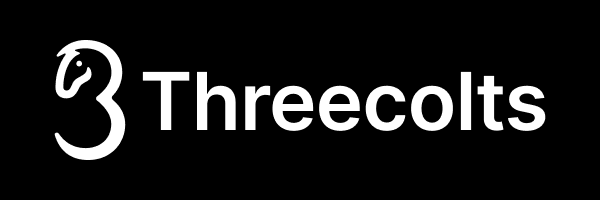
| SellerBench | Automatically monitors missing FBA reimbursements and overcharged fees to help sellers get refunds. |
| OldStreetMedia | Offers marketing and management services to help Amazon sellers grow sales. |
| TacticalArbitrage | Facilitates online arbitrage and finding good wholesale deals for sellers. |
| HotShp | Creates automatic blog and social media posts, titles, etc. |
| Bindwise | Provides real-time listing and inventory alerts. |
| ChannelReply | Integrates multi-channel customer service. |
| DimeTyd | Automated, logic-based engine to recoup profit leakage from Amazon accounting errors. |
| EnterpriseAPI | Offers a raw data source for third-party (3P) monitoring. |
| FeeProtector | Monitors Fulfillment by Amazon (FBA) fees. |
| FeedbackWhiz | Automates emails and reviews for Amazon sellers. |
| FW Profit Analytics | Offers product-level profit data. |
| PrinceletSQL | Provides analytics and dashboard solutions. |
| RefundSniper | Focuses on vendor central profit recovery. |
| SmartRepricer | Offers automated pricing solutions. |
| SellerRunning | Provides a cross-border arbitrage and dropship solution. |
| ScoutIQ | Helps search for profitable books to sell on Amazon. |
WeCommerce

WeCommerce, headquartered in Vancouver, British Columbia, operates as a home for e-commerce technology, housing leading applications, themes, and agencies. It supports over 100K merchants globally through its portfolio companies, which provide a variety of services, from user engagement and customer satisfaction enhancement through reviews and ratings to leveraging user-generated content and designing premium Shopify themes.
Here’s a table summarizing the key events and acquisitions:
| Date | Event |
| 2009 | WeCommerce initially operated as a Shopify theme business called Pixel Union. It was founded in 2009 by Chris Sparling and Andrew Wilkinson (founder of Tiny Capital). |
| 2017 | Pixel Union acquired Yopify and Supple, two apps within the Shopify ecosystem. This was followed by the acquisition of Out of the Sandbox, a prominent Shopify theme designer. |
| June 2020 | WeCommerce acquired Foursixty, a social commerce app. |
| December 2020 | The company raised $60 million via a reverse takeover listing (RTO) on the Toronto Venture Stock Exchange (TSXV). |
| April 2021 | WeCommerce acquired Stamped, a provider of reviews, ratings, and loyalty and rewards for merchants. |
| July 2021 | WeCommerce raised $33.7M in follow-on funding via an equity offering. |
| August 2021 | The company purchased Archetype, another theme provider. |
| March 2022 | WeCommerce acquired Kno Commerce, a post-purchase survey provider. |
WeCommerce differentiates itself with a streamlined and transparent sale process for entrepreneurs, emphasizing flexibility and long-term holdings without altering company culture. Like Tiny Capital, the company looks for products with a simple value proposition, unique advantages, healthy margins, a high-quality team, transparent business models, and a solid foundation for the long term.
| Stamped | Helps business owners gather reviews, ratings, and utilize referrals. |
| Foursixty | Facilitates the use of user-generated content by brands. |
| KnoCommerce | Allows e-commerce brands to easily carry out surveys through a variety of channels. |
| Orbit | A suite of applications used by business owners to improve conversion rates, increase order totals, etc. |
| Knit Agency | Works with brands to deliver customized e-commerce experiences. |
AppHub
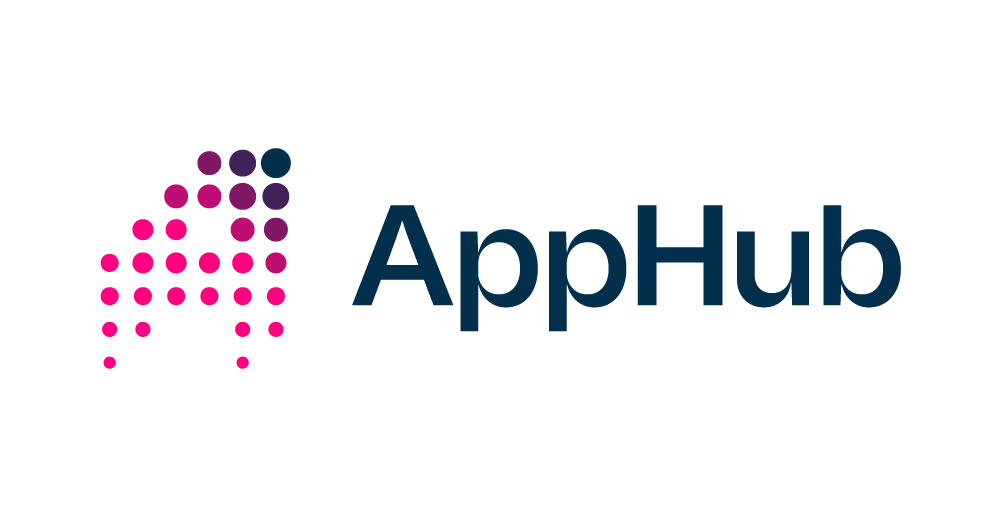
Founded in 2021 and based in New York and San Francisco, AppHub has swiftly carved a niche in the e-commerce sector. The company’s strategic acquisitions target software solutions that empower online sellers to optimize their operations, enhance customer engagement, and increase sales across popular platforms like Magento, Shopify, and WooCommerce.
In April 2022, the company raised $60 million in a Series A funding round led by Silversmith Capital Partners, an equity firm based in Boston. They announced a significant strategic growth investment of $95 million on July 25, 2023. This investment round was led by PSG. Plus, Silversmith Capital Partners, a previous investor, also contributed to the funding.
Alongside this financial boost, AppHub has further expanded its portfolio through the acquisition of Boost Commerce, marking a pivotal step in its mission to serve merchants across various e-commerce platforms.
| Conversion Bear | Helps e-commerce sellers increase conversion rates and sales revenue. |
| RoboTurk | Provides an address validator tool and festive decorations to Shopify sellers. |
| ViralSweep | Facilitates email marketing efforts by providing a host of useful features. |
| Nextsale | Helps business owners improve conversions by using marketing tools and analytics. |
| Rich Returns | Allows sellers to simplify the return process for their customers. |
| OrderBump | Facilitates upsells during checkout and after purchase. |
| Appikon | A suite of Shopify apps aimed at increasing customer engagement. |
| Reviews.io | A tool for collecting text, video, and photo reviews from customers to increase conversion. |
| Boost Commerce | Provides product discovery solutions for Shopify merchants. |
Unaric
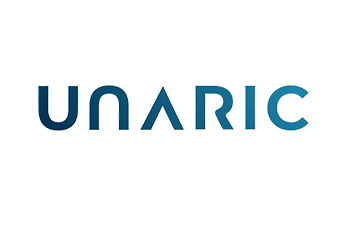
Launched with a notable $35 million in seed funding, Unaric is positioned to lead the market of Salesforce product suites. Its mission centers around transforming the Salesforce ISV ecosystem by strategically acquiring, scaling, and integrating Independent Software Vendors (ISVs).
Moreover, Unaric aims to tackle the scaling challenges encountered by founders within this space, creating a robust platform for rapid growth and wide-scale expansion. Supported by a strong network of distinguished partners and investors, including leading figures from the industry and forward-thinking entrepreneurs, it is on a quest to tap into the extensive potential of Salesforce applications for businesses worldwide.
| Mirage Telephony | A CTI Connector for Salesforce, enabling seamless telephony integration. |
| ELTON | Provides inventory management and asset tracking within Salesforce. |
| Scan Anything | A tool for barcode and QR code scanning directly within Salesforce. |
Ascential
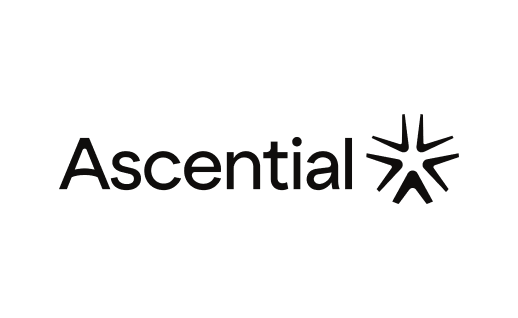
| Edge | Delivers data insights, retail forecasting, and advisory services. |
| Flywheel | Offers managed services for search and display on digital commerce platforms. |
| IntelliBrand | Increases online retail brand performance with analytics and content creation. |
| OneSpace | Develops product content strategies for various e-commerce platforms. |
| Perpetua | Provides advertising optimization and intelligence for e-commerce. |
| Spotlight | Features proprietary bidding and SKU management technology. |
| WhyteSpyder | Offers content creation and analytical services for Walmart sellers. |
| Yimian | Specializes in artificial intelligence and data analytics solutions. |
Tiny Capital
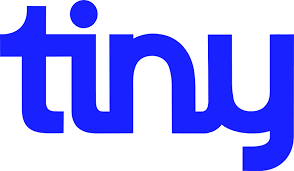
Founded in 2006, Tiny Capital is a Canada-based aggregator firm that invests in and acquires bootstrapped businesses. Based on a philosophy inspired by Warren Buffett’s investment approach, it has grown since its establishment in 2007, evolving from starting companies to buying them in 2014 with a straightforward, founder-friendly process.
As of now, Tiny Capital boasts ownership in over 40 companies, has made more than 90 minority investments, and employs over 900 people globally. The firm prides itself on a management style that respects company culture, avoids unnecessary synergies, and allows businesses to operate independently, aiming to be the buyer that founders are proud to work with. Tiny Capital’s enterprise value has surpassed $1 billion, underscoring its significant impact and success in the investment landscape.
Their investment criteria are as follows:
- High margins,
- MOAT via brand/community/or niche
- Simple business model
- Profits ranging from $500k to $50M
- Operating time of over three years
- A high-quality team
- A positive and ethical approach
Moreover, the firm promises to respond to acquisition proposals within 48 hours, make an offer within seven days and close the deal in 30 days.
| Pixel Union | Shopify theme provider, sold to WeCommerce, a listed Shopify apps aggregator. |
| KnoCommerce | Customer survey platform for e-commerce brands, collecting insights to improve marketing strategies. |
| Dribble | Offers a community and marketplace for creatives. |
| Notarize | Provides remote online notarization, signature, and eClosing services, with revenues exceeding $500M in 2021. |
| Creative Market | Offers a marketplace for design assets and ideas. |
| Stamped | Provides a reviews and loyalty platform for e-commerce. |
| SuppleApps | Develops customized apps for Shopify. |
| Yopify | Offers e-commerce apps to enhance sales, conversions, and customer service. |
| Z1 Digital Studio | Helps sellers launch new products with its digital product studio services. |
Balio
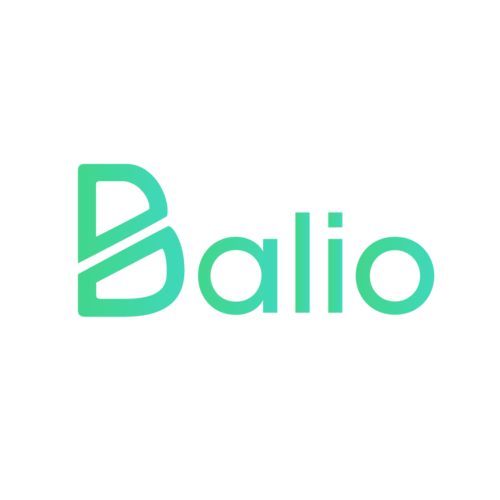
Focuses on innovative SaaS businesses in guest engagement for hotels, product communications via AI, hotel revenue management, and government grant and loan reporting management in North America.
SureSwift Capital
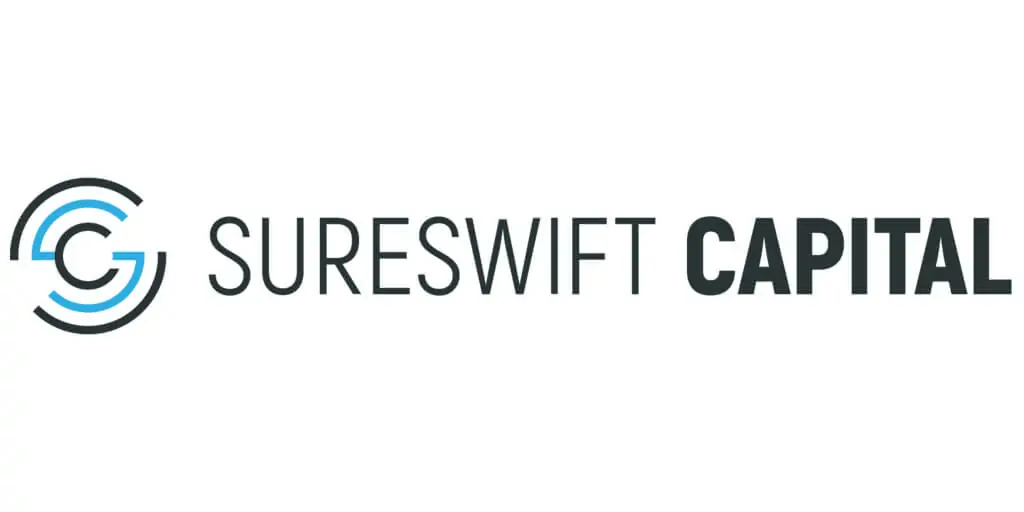
Specializing in acquiring established SaaS companies, SureSwift Capital’s primary objective is to offer founders a smooth exit while ensuring the continued growth and well-being of their teams and customers. Its distinctive business model includes providing investors with monthly profit shares, underscoring a commitment to consistent growth, profitability, and collaboration.
Operating with a remote-first approach, the company also boasts a diverse global team comprising over 150 members across 20 countries. This team is dedicated to cultivating high-performing units that support and enhance the SaaS businesses within SureSwift Capital’s portfolio. The company primarily focuses on acquiring bootstrapped SaaS products that demonstrate profitability, growth, and a loyal customer base.
| Vitay | Facilitates automatic reference checking for HR professionals and recruiters. |
| Simple Purchase Orders | Automates inventory restocking and purchase orders for e-commerce sellers. |
| GrowthHero | Enables Shopify store owners to run affiliate programs. |
| MeetEdgar | Automates social media management for small business owners and influencers. |
| Tradervue | Online trade journaling tool for trading firms and traders. |
| Docparser | Makes it easy to move data from images, Word, and PDF files to Google Sheets, Excel, and other formats. |
| Back in Stock | Helps Shopify sellers to automatically notify customers about products being back in stock. |
| Storemapper | Store locator tool that can be added to any website. |
| Wingman | Helps traders improve performance by automating trade tracking. |
| Cross Sell | Allows Shopify sellers to add a “you might also like…” feature to their stores. |
| FeedbackPanda | Eases tracking of students’ progress and managing feedback for ESL teachers. |
| ChargeStripe | Enables small store owners to accept credit and debit card payments using smartphones. |
| Jell | Facilitates team collaboration and conducting standup meetings. |
| Mailparser | Extracts necessary information from emails to save time on administrative work. |
| MySiteAuditor | Creates automated SEO reports for businesses. |
| Paydirt | Assists freelancers in tracking time and creating invoices. |
Conclusion
Technology is constantly improving, with more data, new APIs, advancements in bandwidth, machine learning and increased penetration rates across businesses and customers. SaaS products will continue to grow and evolve, and while conglomerates and platforms continue to scale, so will independent micro-SaaS businesses, with often just one founder behind a whole business. Providing the infrastructure and support necessary to bring that micro-SaaS business to the next level is becoming an attractive value proposition, and we expect the number of exits in this space to increase.
Hence, entrepreneurs and business owners looking for a strategic partner to scale their ventures or considering exit opportunities are invited to connect with Alexej Pikovsky at [email protected]. With a proven track record of transforming small businesses into global powerhouses, Pikovsky offers unparalleled expertise for businesses poised for the next level of growth. So, seize the chance to discover how your business could flourish with expert guidance and the right scaling strategies.
FAQ
An aggregator of SaaS and software companies can be thematic or industry agnostic. The group usually looks at $500k-2m ARR micro-SaaS companies which solve a problem in a certain niche and have a sticky business model. The group has a centralised marketing, tech and finance function, providing synergies across the portfolio of companies it acquires.
Private equity funds such as Hg Capital, Vista Equity Partners or Marlin Equity Partners have a strong focus on Software companies, however, they operate each acquired company as a stand-alone business with no centralised support apart from the financial function. Each business private equity firms acquire has a large team of professionals across multiple functions such as HR, marketing, distribution, software development and finance. With micro-SaaS aggregators, the product is fairly simple and is a self-serve solution, thus rarely requiring a big customer success team. Plus, a lot of the sales & marketing is done via product-led growth and email marketing rather by than large teams of sales professionals. Without the big workforce, it is much easier to acquire these small companies/ solutions and put them under an umbrella of functional experts who sit in the aggregator.
At this point, there are not that many companies in this space, as it is not easy to find targets and many software companies try to get venture capital funding, making it not a suitable target to acquire these businesses.
Given the lack of exit opportunities and a ceiling in the size the business can achieve, the businesses are usually valued at 4x to 6x EBITDA multiples. Many of the aggregators raise debt financing to acquire these businesses, using the cash generated from the operations to pay down the debt. This approach is similar to private equity and the Amazon aggregator space.

